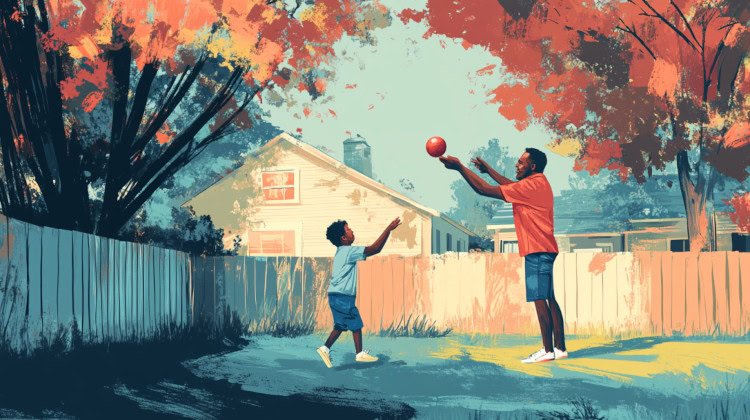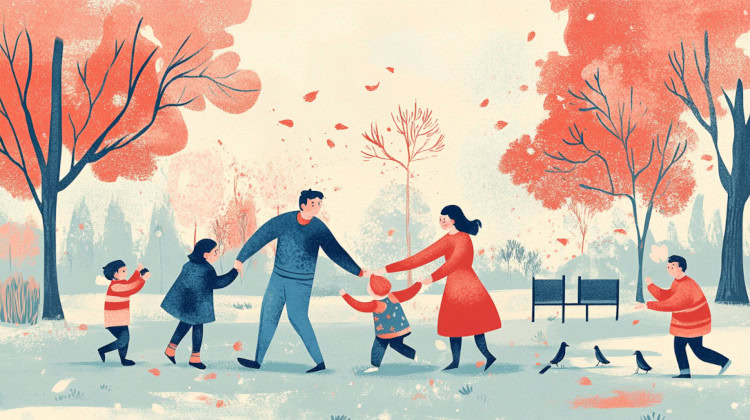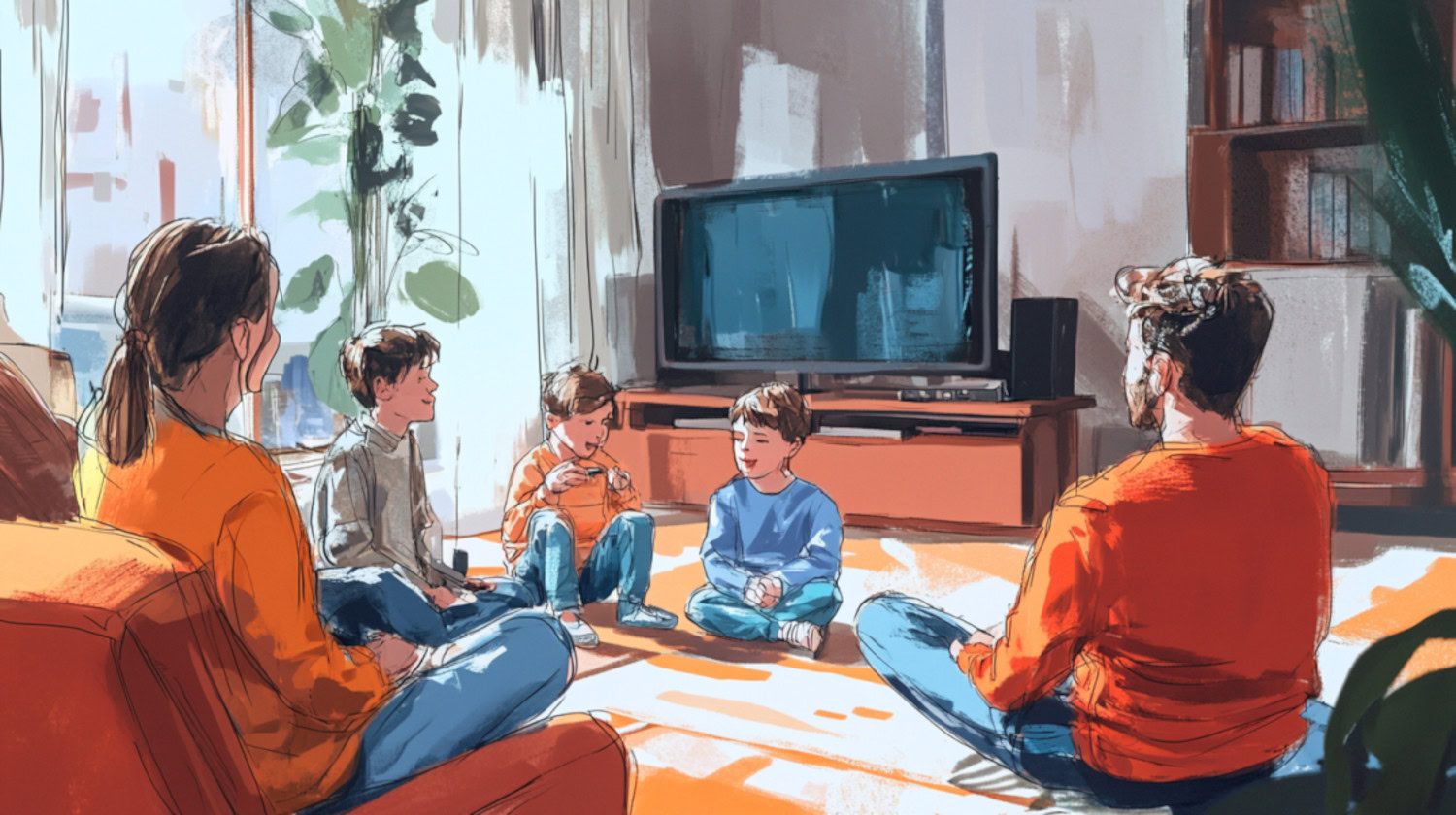In This Article
- Why Should I Talk to My Child About Cannabis?
- When Should I Talk to Them About It?
- Starting the Conversation
- Why Medical Marijuana is Medicine
- Talking to Kids About Who Should and Shouldn’t Use Cannabis
- When Minors Need to Use Medical Cannabis
- The Difference Between Medical Marijuana and “Drugs”
- Does Cannabis Affect Parenting?
- References
Key Takeaways
- Open conversations help kids understand cannabis as medicine, clear up confusion, and encourage safe choices.
- Use simple, age-appropriate language to explain medical marijuana, legal cannabis, and the risks of misuse, especially with edibles.
- Studies suggest that responsible use and legalization may positively affect parenting behaviors, like increasing quality time with children.
Talking to your kids about marijuana is important as cannabis is becoming legal in more states. It's used by many for medical reasons, so it's more visible and accessible than it used to be. Kids might encounter it at a friend’s house, hear about it online, or even come across edibles that look like regular snacks.
Starting the conversation early can help them understand what cannabis is, how it’s used as a medicine, and why it needs to be used responsibly. With clear and straightforward explanations, you can give kids better tools to make safe choices. This can clear up confusion and make it easier to recognize when cannabis products might not be right for them.
Why Should I Talk to My Child About Cannabis?
Talking to your child about cannabis is an important step in promoting cannabis safety. As cannabis becomes more widely accepted, kids are likely to encounter it in some way—whether through friends, media or even at home. Open communication ensures they receive accurate information from a trusted source.
By discussing cannabis early, parents can:
- Teach children the difference between medical and recreational use.
- Explain the importance of safe and responsible consumption for adults.
- Prevent potential misuse or accidental exposure, especially with edibles and other products that may look like regular snacks.
A proactive approach helps kids feel comfortable coming to their guardians with questions and helps them make more informed choices.
When Should I Talk to Them About It?
It’s best to talk to your kids about cannabis before they encounter it elsewhere. For younger children, this might mean a simple discussion if they see cannabis products at home or hear about it from others. Older kids may need more detailed information, especially if they’re exposed to cannabis use through peers or social media.
There are several signs it might be time to start the conversation.
- Kids might start asking questions about what cannabis is or why people use it.
- Maybe they mention hearing about cannabis at school, online, or in the news.
- Or, they might have been exposed to situations where cannabis products are present.
Tailor the conversation to their age and maturity level. Keep it open, honest, and nonjudgmental.
Starting the Conversation

Starting a conversation about cannabis with your child can feel daunting, but it’s an opportunity to guide their understanding and answer their questions. Whether discussing medical marijuana, legalization, or edibles, the key is to use simple, clear language that’s appropriate for their age.
How do you explain medical cannabis to a child?
When talking to kids about medical cannabis, it’s helpful to frame it like other medicines they’re familiar with. You could say:
- “Just like some people take medicine for a headache or an upset stomach, some people use cannabis to help with pain, stress, or other health problems. A doctor might recommend it for certain people, but like all medicine, it has to be used safely.”
This approach normalizes medical cannabis. It also highlights its purpose as a treatment — not something to misuse.
How do you talk to kids about legal cannabis?
Legalization can be tricky to explain. A good way to address it is to compare cannabis to other regulated substances, like alcohol. An example of an explanation might sound like:
- “In some places, cannabis is legal for adults, like alcohol. That doesn’t mean it’s safe for kids, though. It’s important to follow the rules and only use cannabis if it’s meant for you.”
Including context from the history of cannabis in the U.S. and Nixon’s admission about marijuana can help older kids understand why attitudes and laws around cannabis have changed over time.
How do you talk to kids about edibles?
Edibles can be especially confusing for kids since they often look like ordinary snacks or candy. Be clear about the risks:
- “Some cannabis products, like gummies or cookies, look like regular food but aren’t safe for kids. Eating even a small amount can make you very sick. That’s why it’s important to ask an adult if you’re unsure about a snack.”
Why Medical Marijuana is Medicine
Medical cannabis works by interacting with the body’s endocannabinoid system, helping people manage pain, anxiety, or other medical conditions. For older kids, you might explain something like:
- “Cannabis has chemicals that help some people feel better. Doctors sometimes recommend it for certain conditions, like chronic pain or seizures. But it’s not like regular medicine you get from a pharmacy.”
This is a great place to emphasize that medical marijuana is not a cure-all but a tool some people use to improve their health.
Talking to Kids About Who Should and Shouldn’t Use Cannabis

It’s important for kids to understand that cannabis is not appropriate for everyone. A simple way to explain this might be:
- “Cannabis is meant for adults or people with certain health problems. For kids, it can affect how your brain grows and works. That’s why doctors don’t recommend it for most kids or teenagers.”
You can also discuss the importance of not sharing medications or using something meant for someone else, reinforcing the idea that cannabis has specific, individual uses.
When Minors Need to Use Medical Cannabis
For some children with serious medical conditions, medical cannabis may be recommended. If this applies to your family or someone your child knows, you can explain:
“Sometimes, doctors recommend cannabis for kids who are very sick or have certain health problems that other medicines don’t help. It’s only used under a doctor’s care.”
For more information, guides answering if CBD oil is safe for children and if minors can get medical marijuana can address common questions. If parents are weighing this option, a guide on the pros and cons of medical marijuana cards can also be helpful.
The Difference Between Medical Marijuana and “Drugs”
To clear up misconceptions, explain the difference between medical cannabis and recreational use. An example might be:
“Medical cannabis is a type of medicine that helps people with certain health problems. It’s used differently from recreational cannabis, which some adults use for fun or to relax. Medical cannabis is used under a doctor’s guidance for certain health conditions, while recreational use is more like how some people might enjoy a glass of wine. It’s important to use it responsibly and only when it’s recommended for you until you're old enough to be able to decide to use it recreationally.”
To dive deeper into this distinction, a guide on the differences between medical and recreational marijuana can be a helpful resource.
Does Cannabis Affect Parenting?

One question some parents might have is, “Does marijuana affect parenting?” While cannabis use can be a sensitive topic, recent studies suggest that it may not have the negative effects some expect. In fact, research shows that medical cannabis use and legalization can have positive impacts on parenting behaviors (in certain contexts).
For example, a federally funded study found that cannabis use among parents was associated with increased positive parenting behaviors. These included spending quality time with their children and being more present in daily activities. This challenges traditional stereotypes about cannabis use. It also highlights the importance of understanding context and moderation.1
Another study analyzed the effects of cannabis legalization on family dynamics. It found that legalization increased the time parents spent with their children. This suggests that reducing stigma and providing legal access to cannabis for medical use may have indirect benefits on child development and family life.2
It’s important to note that these findings don’t imply cannabis use is without risks. Parents should always prioritize responsible use, avoid consumption around children, and ensure cannabis products are stored securely to prevent accidental access.
References
- Freisthler B, Thurston H, and Price Wolf J. Examining the Context of Cannabis Use and Parenting: An Exploratory Ecological Momentary Assessment Study. Parenting. 2024. doi:https://doi.org/10.1080//15295192.2024.2394656
↩︎ - Bansak C, Kim JH. Medical marijuana legalization and parenting behaviors: An analysis of the time use of parents. Journal of Applied Econometrics. 2024. doi:https://doi.org/10.1002/jae.3084 ↩︎
The information in this article and any included images or charts are for educational purposes only. This information is neither a substitute for, nor does it replace, professional legal advice or medical advice, diagnosis, or treatment. If you have any concerns or questions about laws, regulations, or your health, you should always consult with an attorney, physician or other licensed professional.




